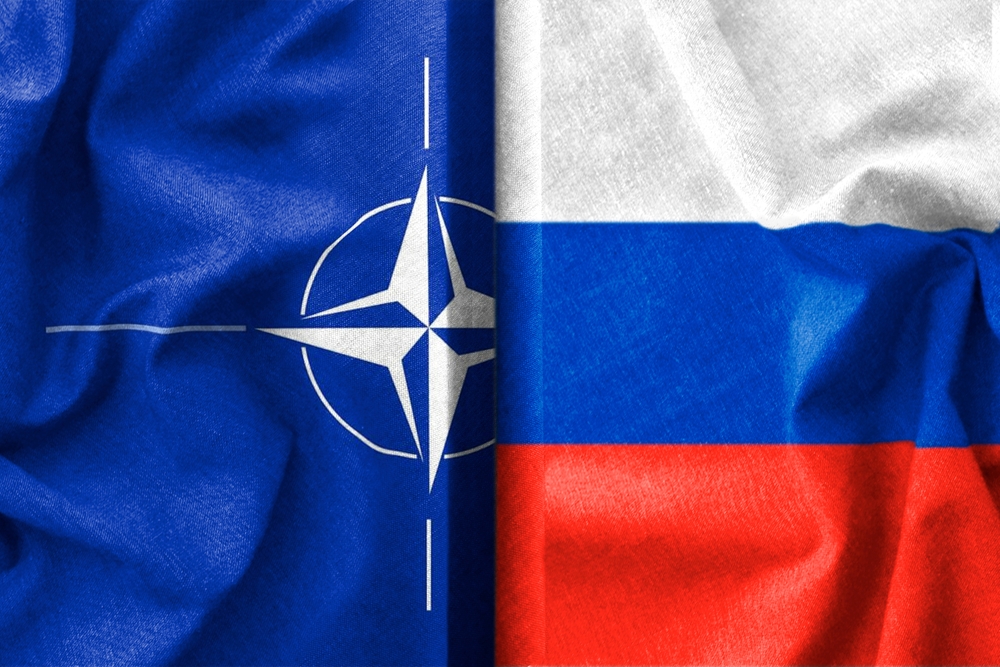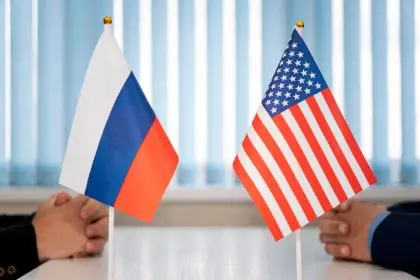In the wake of Russia’s latest deadly barrage on western Ukraine, NATO officials are sounding the alarm and calling for urgent reinforcement of long-range weapon systems across the alliance. The assault, which included missiles and drone strikes, killed at least two civilians and damaged key infrastructure.
It marks one of the most significant escalations in recent weeks as Russia shifts its focus to areas previously thought to be less vulnerable.
A deadly wake-up call
The Russian offensive struck the city of Lviv and nearby military zones, with local authorities reporting that both residential and strategic facilities were targeted. Ukrainian President Volodymyr Zelenskyy condemned the attacks, calling them “an act of terrorism against civilians.”
The strikes represented a concerning escalation in both scope and location, bringing the conflict dangerously close to NATO borders. The proximity of these attacks to alliance territory has triggered urgent discussions about defensive capabilities and deterrence strategies.
NATO Secretary-General Jens Stoltenberg issued a strong response: “Russia’s escalating use of long-range weapons demands a corresponding upgrade in NATO’s deterrence. We must ensure our forces have the range, the firepower, and the readiness to respond.”
What NATO wants now
During emergency talks in Brussels, NATO military leaders outlined urgent needs for enhanced defensive and offensive capabilities. The alliance is calling for more long-range precision missiles for both defense and counterattack capability, recognizing that current systems may be insufficient to deter further escalation.
Enhanced air-defense systems have become a priority to protect member territories, especially in Eastern Europe where countries feel increasingly vulnerable to Russian strikes. The alliance also wants faster arms transfers to Ukraine to bolster frontline resistance and prevent further territorial losses.
Several member states, including Poland and the Baltic countries, expressed serious concern that Russia’s strikes near the western Ukrainian border are dangerously close to NATO territory. “This isn’t just Ukraine’s war — it’s about European security,” said Lithuania’s Defense Minister.
The broader security implications
This escalation comes as NATO prepares for its annual summit next week, where long-term strategies for supporting Ukraine and deterring further Russian aggression will dominate the agenda. The alliance has already expanded rapid deployment forces and is working on new interoperability agreements among member nations.
The U.S. is expected to announce a new defense aid package, though some members are pushing for a firmer stance — especially in light of increasing threats near Moldova, the Black Sea, and eastern Poland. The strikes have intensified calls for a more robust response that goes beyond current support levels.
The timing of Russia’s escalation, just before the NATO summit, appears calculated to test alliance resolve and unity in the face of increased pressure.
Article 5 concerns grow
The strike and NATO’s sharp reaction highlight the growing risk that the war could expand beyond Ukraine’s borders. Analysts warn that if Russia continues attacking closer to NATO territory, even accidental incursions could trigger Article 5 — the alliance’s mutual defense clause.
“This is a red flashing warning sign,” said Michael O’Hanlon, a senior fellow at the Brookings Institution. “NATO’s posture in the next few weeks could define the trajectory of the conflict going forward.”
The proximity of recent strikes has forced NATO to confront the possibility of direct involvement if Russian attacks cross into alliance territory, whether intentionally or by mistake.
Alliance unity under pressure
The escalation tests NATO’s unity as member countries face difficult decisions about escalation risks versus the need for stronger deterrence. Some members advocate for immediate deployment of advanced systems, while others worry about provoking further Russian aggression.
Eastern European members, particularly those bordering Ukraine, are pushing hardest for immediate action and enhanced protection. They argue that waiting for further escalation could prove catastrophic for regional security.
Western European allies, while supportive, are weighing the risks of escalation against the imperative to protect alliance territory and maintain credible deterrence.
The weapons NATO needs
The alliance is specifically calling for advanced missile defense systems capable of intercepting long-range threats, offensive capabilities that can strike deep into enemy territory, and integrated command systems that allow for rapid response to emerging threats.
These systems would not only protect NATO territory but also demonstrate resolve to Russia that further escalation would face serious consequences. The weapons request represents both defensive needs and deterrent messaging.
Critical decisions ahead
As global tensions rise, NATO faces a critical test of its resolve and unity. Can the alliance deter Russia without escalating the conflict further? Will Western support for Ukraine hold under increasing strain and risk of direct confrontation?
The upcoming summit will likely determine whether NATO adopts a more aggressive defensive posture or maintains current support levels while hoping for diplomatic solutions.
For now, the call from alliance leadership is clear: NATO wants long-range weapons, enhanced defensive capabilities, and it wants them immediately to address the growing threat to European security.
What’s at stake
The alliance recognizes that its response to this escalation will set precedents for how it handles future threats and challenges to member security. Failure to respond adequately could encourage further Russian aggression and test alliance credibility.
Bottom line? NATO’s urgent call for long-range weapons following Russia’s strikes on western Ukraine reflects growing concerns about escalation near alliance borders. The alliance faces critical decisions about balancing deterrence needs with escalation risks as the conflict threatens to expand beyond Ukraine’s boundaries.
















